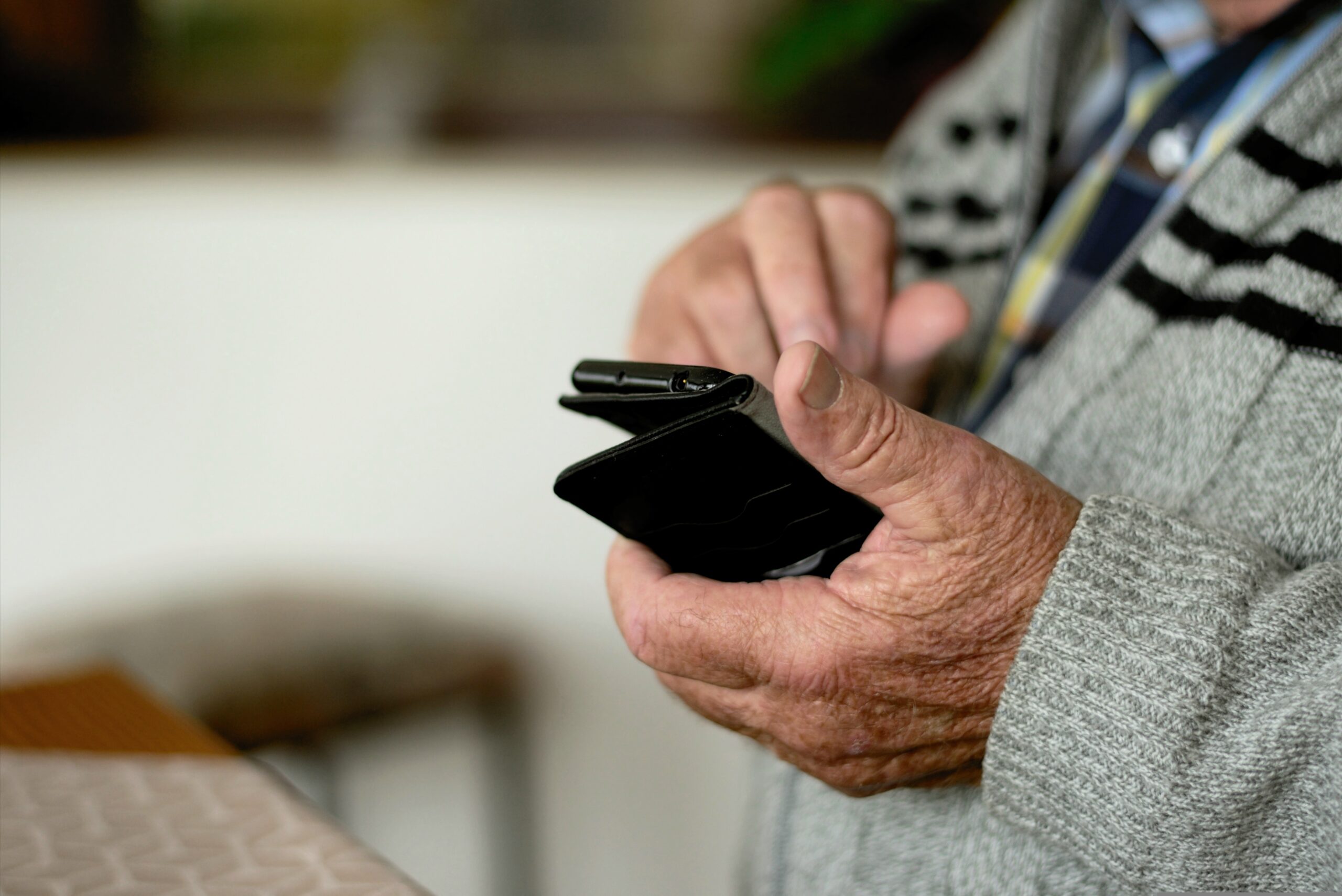By spring 2022, process of checking someone’s criminal record will become first of ‘hundreds’ to switch to incoming system
Credit: tigerlily713/Pixabay
Checks performed by the Disclosure and Barring Service will be the first services to use the new government-wide login system.
The Government Digital Service is currently working on a project, costing well in excess of £100m, to create a single unifying GOV.UK account through which citizens will be able to access a comprehensive range of services across all departments. The platform will replace an existing patchwork of almost 200 separate online accounts, which use more than 40 different login methods.
The first government agency to make use of the new system will be the Disclosure and Barring Service, which is working in partnership with GDS to help build new online processes – or ‘user journeys’ – that interoperate with the login tool.
Natalie Jones, GDS director of digital identity, said that the digital unit will take what it learns from its work with DBS and apply it in its ongoing engagements with all other departments and agencies.
“User feedback is a key part of our delivery plan,” she wrote, in a blog post. “I’m determined to get stuff out there that we can really learn from. This means that, by April next year, users will be able to request a basic DBS check through their GOV.UK account by entering their UK passport information and answering some questions that only they should know the answer to in order to prove their identity.”
Related content
- GOV.UK Verify to continue until 2023 with £11m-a-year funding
- Minister on plan for government digital tools that ‘serve users proactively – rather than reactively’
- Government says ‘lack of mandate’ contributed to muted Verify uptake
The basic DBS check can be requested by businesses or individuals seeking to obtain information on a person’s criminal convictions and police cautions. It it’s the lowest level of check offered by DBS; standard and enhanced checks are more in-depth are used by employers hiring people to work in roles of great responsibility or regulated professions – most notably the education and healthcare sectors.
DBS services should be the first of many to rapidly move to the new system next year, Jones said.
“Getting the first services and users using GOV.UK Sign In is essential, but to really have met our vision of One Login for Government we need to quickly go from one or two to tens and then hundred,” she said. “So, we are working with other departments, directorates, agencies and individual services to build a clear, joined up and shared roadmap. It will enable services to understand when their required functionality will be available and give clear milestones and timelines for migration.”
During its work to date on the login system, more than 700 users have taken part in GDS user research – a process which found that “many people assume they already have an online government account that holds data on them and that services are joined-up”.
Jones said that 61% of research participants “are broadly comfortable with departments sharing that data because they think we already do”.
GDS has already launched the new authentication system that be used to protect online services accessed via on a desktop browser.
The new digital login method is also being developed alongside a GOV.UK app, which will allow users to access hundreds of online services from a single mobile application.
This will be supported by a separate identity-checking app, which will enable citizens to verify their identity by using their device’s near-field communication capability to scan passports and driving licences. GDS is to work alongside a commercial partner on the creation of the identity-checking app; a £5m contract notice was recently published seeking firms wishing to bid for the two-year project.
Once the document-checking app is ready, it will enable users to verify their identity in about 10 minutes, Jones said.
The GOV.UK app that it supports will represent a “superhighway for users who can and want to use their mobile to apply for government services”, Jones said.
“Around 70% of overall traffic to GOV.UK is now via mobile and citizens are increasingly looking for faster, simpler ways to get stuff done,” she added. “Use of the app will be optional; it will be just one of the ways people will be able to prove their identity based on their preferences and documents available. That’s just part of our work to ensure no-one is left behind. We are also looking at the alternative journeys we need to provide to support inclusion and we are working through how online and offline channels need to come together to make sure everyone can use our system.”




Mexican Easy Pharm: Mexican Easy Pharm – buying from online mexican pharmacy
buying prescription drugs in mexico https://mexicaneasypharm.com/# buying prescription drugs in mexico online
mexican pharmaceuticals online
pharmacies in mexico that ship to usa https://mexicaneasypharm.com/# п»їbest mexican online pharmacies
mexico drug stores pharmacies
http://semapharm24.com/# semaglutide tablets store
order prednisone on line
https://cytpharm.com/# Cytotec 200mcg price
cost of prednisone 5mg tablets
https://kamapharm.com/# Kama Pharm
prednisone pills cost
https://kamapharm.com/# Kama Pharm
prednisone
https://dappharm.shop/# Priligy tablets
prednisone 2.5 mg daily
https://semapharm24.shop/# SemaPharm24
india buy prednisone online
http://kamapharm.com/# cheap kamagra
where can i buy prednisone online without a prescription
https://dappharm.com/# dapoxetine price
10 mg prednisone tablets
http://dappharm.com/# buy dapoxetine online
prednisone purchase online
http://predpharm.com/# mail order prednisone
prednisone 10 mg tablets
https://dappharm.com/# dapoxetine online
buy prednisone tablets online
http://predpharm.com/# PredPharm
buy prednisone 20mg without a prescription best price
https://semapharm24.shop/# cheap semaglutide pills
prednisone 10mg for sale
https://kamapharm.shop/# Kamagra 100mg
200 mg prednisone daily
https://farmaprodotti.shop/# farmacie online affidabili
Farmacia online miglior prezzo
https://farmasilditaly.shop/# le migliori pillole per l’erezione
acquisto farmaci con ricetta
http://farmasilditaly.com/# viagra naturale
farmacia online
http://farmaprodotti.com/# Farmacie on line spedizione gratuita
migliori farmacie online 2024
viagra cosa serve viagra originale in 24 ore contrassegno viagra originale in 24 ore contrassegno
The thrill of winning keeps players engaged. http://winchile.pro/# Los juegos de mesa son clГЎsicos eternos.
phtaya phtaya.tech Live music events often accompany gaming nights.
https://taya365.art/# п»їCasinos in the Philippines are highly popular.
Resorts provide both gaming and relaxation options.
Casinos offer delicious dining options on-site. http://phtaya.tech/# Some casinos feature themed gaming areas.
La iluminaciГіn crea un ambiente vibrante.: jugabet chile – jugabet.xyz
Resorts provide both gaming and relaxation options. http://winchile.pro/# Los jugadores pueden disfrutar desde casa.
phmacao casino phmacao com login Players enjoy both fun and excitement in casinos.
Many casinos provide shuttle services for guests.: taya365 – taya365 login
Many casinos host charity events and fundraisers. https://jugabet.xyz/# Las mГЎquinas tienen diferentes niveles de apuesta.
taya777 app taya777.icu Online gaming is also growing in popularity.
The casino industry supports local economies significantly. https://phtaya.tech/# Visitors come from around the world to play.
Las promociones de fin de semana son populares.: win chile – win chile
Visitors come from around the world to play. http://taya777.icu/# Loyalty programs reward regular customers generously.
Security measures ensure a safe environment.: phtaya login – phtaya casino
winchile casino win chile La Г©tica del juego es esencial.
Slot tournaments create friendly competitions among players. https://phmacao.life/# Many casinos host charity events and fundraisers.
Game rules can vary between casinos.: phtaya casino – phtaya
Loyalty programs reward regular customers generously. http://phmacao.life/# Players often share tips and strategies.
A variety of gaming options cater to everyone.: taya777 app – taya777
phmacao casino phmacao com The casino industry supports local economies significantly.
Responsible gaming initiatives are promoted actively. http://taya777.icu/# The gaming floors are always bustling with excitement.
Los jugadores deben conocer las reglas.: winchile – winchile.pro
Slot tournaments create friendly competitions among players. https://jugabet.xyz/# Es comГєn ver jugadores sociales en mesas.
The gaming floors are always bustling with excitement.: taya777 – taya777 login
https://taya365.art/# Some casinos feature themed gaming areas.
Game rules can vary between casinos.
taya777 login taya777 The thrill of winning keeps players engaged.
Slot machines feature various exciting themes.: taya777 login – taya777 login
win chile winchile casino Hay reglas especГficas para cada juego.
The Philippines has several world-class integrated resorts. http://winchile.pro/# La iluminaciГіn crea un ambiente vibrante.
Online gaming is also growing in popularity.: phtaya – phtaya casino
Many casinos have beautiful ocean views.: phmacao club – phmacao casino
Players can enjoy high-stakes betting options. http://phtaya.tech/# The poker community is very active here.
The ambiance is designed to excite players.: taya365.art – taya365 com login
phmacao com login phmacao com login Casino promotions draw in new players frequently.
canadian pharmacy coupon code https://familypharmacy.company/# Online pharmacy USA
xxl mexican pharm xxl mexican pharm mexican pharmaceuticals online
xxl mexican pharm: xxl mexican pharm – mexico drug stores pharmacies
cheapest pharmacy to get prescriptions filled https://xxlmexicanpharm.shop/# mexican border pharmacies shipping to usa
buying prescription drugs in mexico online mexico drug stores pharmacies mexico drug stores pharmacies
cheapest pharmacy prescription drugs http://xxlmexicanpharm.com/# mexico drug stores pharmacies
easy canadian pharm: easy canadian pharm – easy canadian pharm
canadian pharmacy coupon code http://xxlmexicanpharm.com/# п»їbest mexican online pharmacies
pharmacy without prescription http://megaindiapharm.com/# india online pharmacy
xxl mexican pharm xxl mexican pharm xxl mexican pharm
cheapest pharmacy for prescriptions http://xxlmexicanpharm.com/# xxl mexican pharm
canada pharmacy not requiring prescription https://discountdrugmart.pro/# drugmart
indian pharmacy online MegaIndiaPharm MegaIndiaPharm
promo code for canadian pharmacy meds https://discountdrugmart.pro/# discount drug pharmacy
cheapest pharmacy for prescriptions https://familypharmacy.company/# Online pharmacy USA
rx pharmacy no prescription https://xxlmexicanpharm.shop/# mexican online pharmacies prescription drugs
Best online pharmacy Cheapest online pharmacy family pharmacy
canadian pharmacy no prescription needed http://easycanadianpharm.com/# canadian world pharmacy
canadian pharmacy world coupon code https://xxlmexicanpharm.com/# xxl mexican pharm
canadian pharmacy world coupon code http://discountdrugmart.pro/# discount drug mart
discount drug pharmacy discount drugs discount drug mart pharmacy